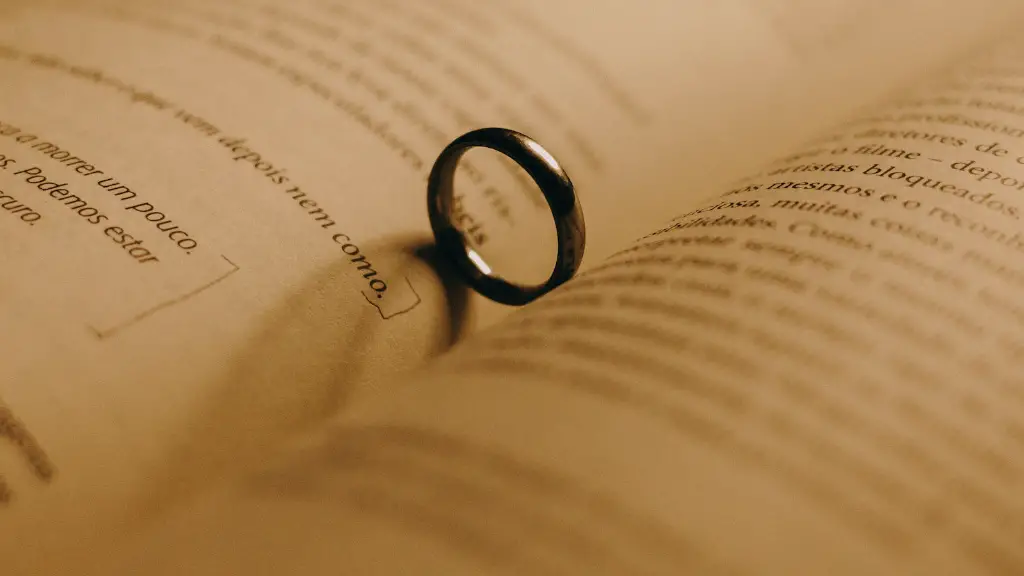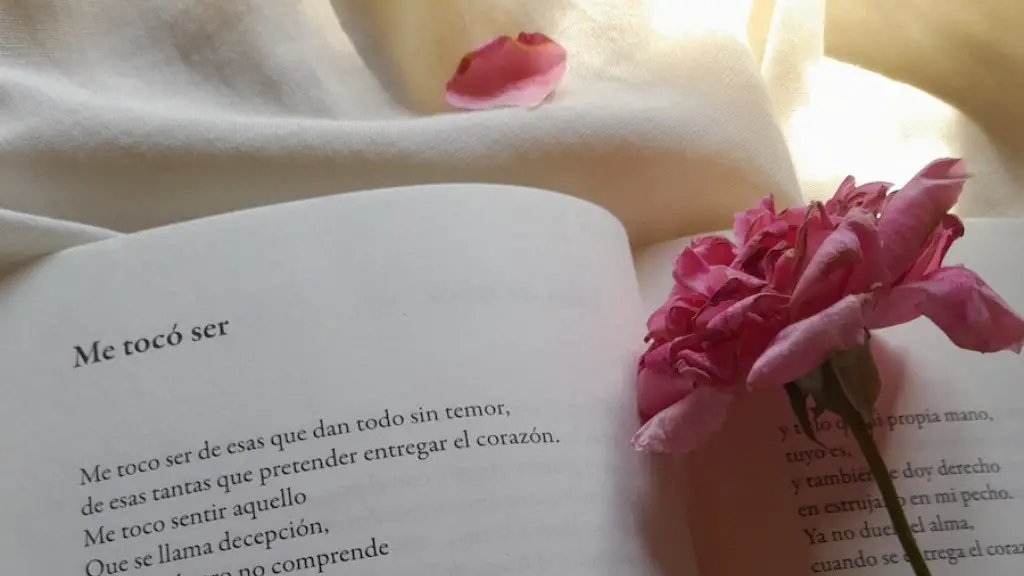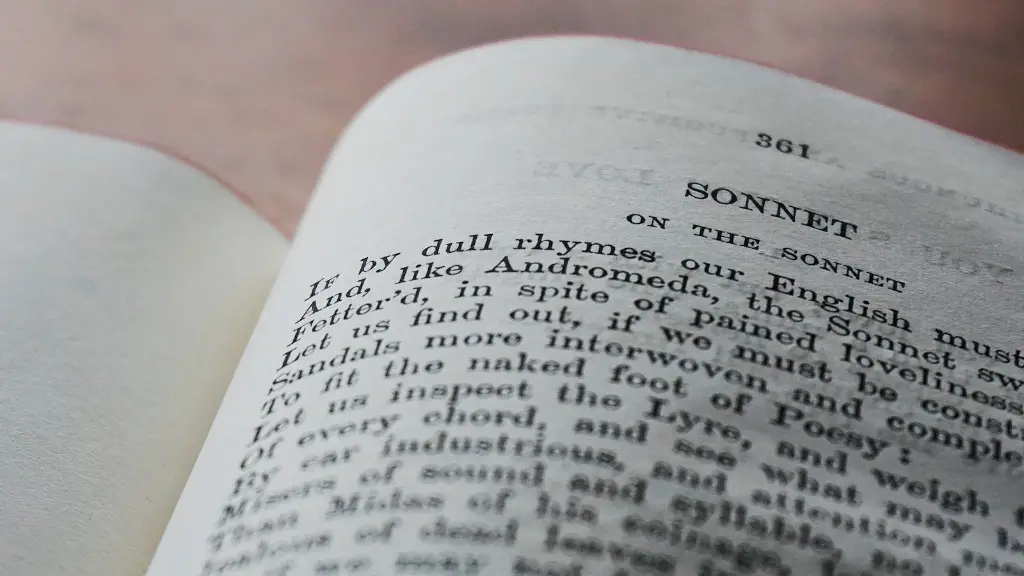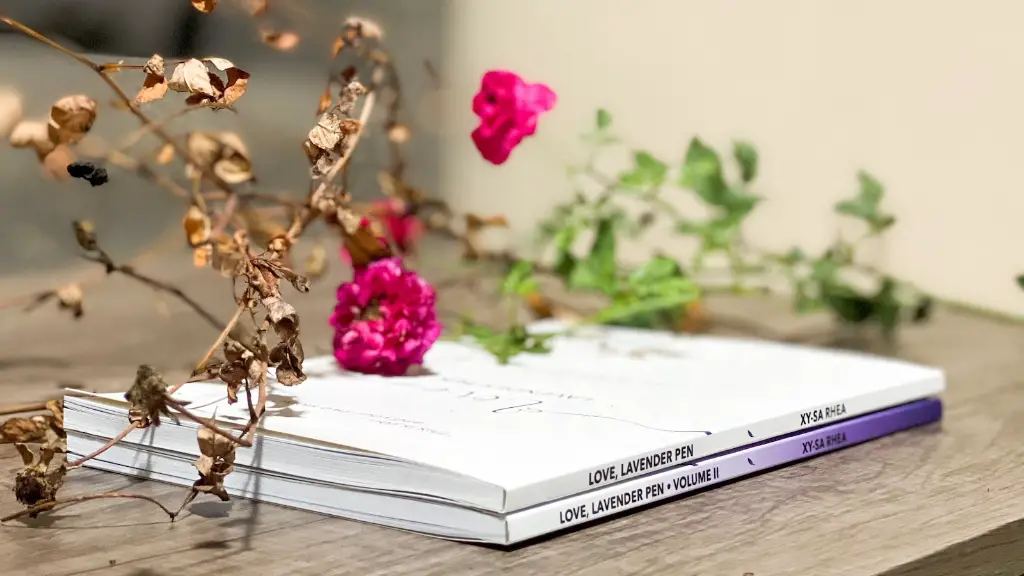Rhythm and Meter of Poetry
Poetry often breaks traditional rules of grammar in a variety of ways. One of its most notable techniques is the use of rhythm and meter for poetic expression. The rhythm of poetry refers to the particular pattern of beats or stresses in a line of text. A meter, on the other hand, refers to the number of syllables a line contains. While grammar edges towards a more structured and concrete set of rules, a poem’s rhythm and meter provide structure, but also offer a certain looseness to it as well.
However, as poetic forms sometimes employ unusual rhythm and meter, exceptions to grammar rules tend to come with them. For example, the placement of words in a line of text is often shifted to ensure that the words will fit the pattern of rhythm and meter set by the poem. This can lead to situations, such as sentences ending in prepositions and using subject-verb agreement problems.
Figurative and Simile Language in Poetry
Poetry often uses figurative, such as metaphors and similes in its words. In prose, these figures of speech are used to add some colour or flair to one’s writing. Through the use of such tropes, poets aim to produce vivid, descriptive imagery to enhance the reader’s experience.
Regrettably, these figures of speech naturally cause the rules of grammar to slip. For instance, the comparison frequently does not accurately reflect the complicated nuances of the words being compared. This reflects the artistic freedom that poets have – their words are not precise, precise nor absolute interpretations of a concept, but rather approximations.
Word Choice in Poetry
Poems also often break rules of grammar through the choice of words used. While prose relies on a precise form of language, poetry frequently embodies a more personal, impressionistic approach.
For example, the use of creative metaphors or subtle nuances of a word can help evoke certain feelings or associations with a passage. As these inventive words may not exist in reference texts, such as two dictionaries, poetry offers an opportunity for writers to explore new ways of expression. Indeed, these meanderings do not often adhere to the standards of grammar textbooks.
Structure and Punctuation
Another notable way of how poetry often defies the bounds of traditional grammar rules is through the use of structure and punctuation. For example, while grammar texts might frown upon the lack of full stops, ellipses in poetry are often used to convey a sense of unfinished, ever-unfolding thoughts. Additionally, white space is often used as a structural component of a poem, emphasizing among other things pauses and changes of mood.
Nowadays, many cutting-edge poets polarize convention by merging words within a line. This unique style twists the traditional borders of poetic expression and sends a strong message to readers. As these authors’ writing is more often than not said to be extreme, they often choose to break opposing rules of grammar to further illustrate their message.
Impact on Meaning
Ultimately, poets employ a variety of techniques to create and express meaning. As one of the creators of the language, poets are free to play with words in whichever way desired. It is this carefree attitude towards grammar that allows poets to create jaw-dropping words, which are hopefully vivid enough to linger in the minds of readers. Through breaking the rules or grammar, writers are given a broader range of expression, allowing them to get the exact message to readers.
Exploring Linguistic Boundaries
While society might impose numerous rules upon an individual, one has full control of language. Consequently, poets have the freedom to explore words, structure and grammar in ways they feel they need to, creating unique, profound works. By not adhering to the bounds of traditional writing rules, poets are free to explore the boundaries of language and introduce a variety of new terms and realms of expression.
Creating a Novel Form of Expression
Poetry often breaks the rules of grammar in order to create a novel and intimate form of expression. More often than not, poets do this in order to craft a unique emotional impression that the reader is sure to connect with. In doing so, the words in a poem can gradually create a separate, original narrative both in readers’ minds and in books.
Incorporating Tone and Emotion
The choice of words used in a poem has the benefit of conveying more emotion to the reader. Poetry offers a way of more completely and subtly conveying the poet’s message compared to prose. Because of this, poets often choose to break the rules of grammar as they seem fitting in order to properly convey their tone and sentiment. By utilizing the range of techniques, from creative metaphors to the arrangement of words, a poet wants to ensure the greatest impact of spoken emotion for the listener.
Achieving Uniqueness and Flexibility
Rules of grammar interact with poetry in interesting and complex ways. By breaking grammar rules, a poet has full freedom to express their thoughts in whatever way they think works best, making the poem as unique and expressive as possible. Ultimately, this openness towards grammar creates a flexibility to interpret the poem however one might interpret it.
Exploring Unconventional Expression
In addition to the flexibility that it offers, the unconventionality of breaking grammar rules also allows poets to explore different levels of expression. By deviating from traditional forms and conventions, poets can break the monotony of words and craft an entirely new form of expression. As poetry is often seen as an open art form, stretching the boundaries of grammar is a key feature of poetry.
Beyond Literary Lines
Poetry can also often break rules of grammar through its poetic exploration. While prose seeks to bring life to more factual accounts, poetry often strives to explore the boundaries between what is tangible and what is intangible. By rearranging words and creating phrases out of unusual combinations of non-words and real words, poets can express feelings and emotions that prose can’t.
Transcending Literary Rules
As poets are able to walk between the realms of reality and dream, they frequently come up with combinations of words that break the standards of grammar. As the poem is a more impressionistic form of writing, some leeway with grammar is often included in order to express a more profound concept and convey the complexities of a feeling or a thing. For this reason, questions about why a poet might choose to break grammar rules, rather than trying to answer them, should often be asked.
Breaking Down Linguistic Barriers
In conclusion, poets often break rules of grammar in order to enhance their words and achieve the tones, feelings and nuances that best expresses their thoughts. While some structures of grammar play an important role in the formation of language, poetic expression often embraces the idea of breaking down the barriers of language and stretching the rules of grammar to create a more vivid landscape of words. Therefore, exploring the complexity of grammar rules in poetry can certainly be an adventure worth undertaking.



